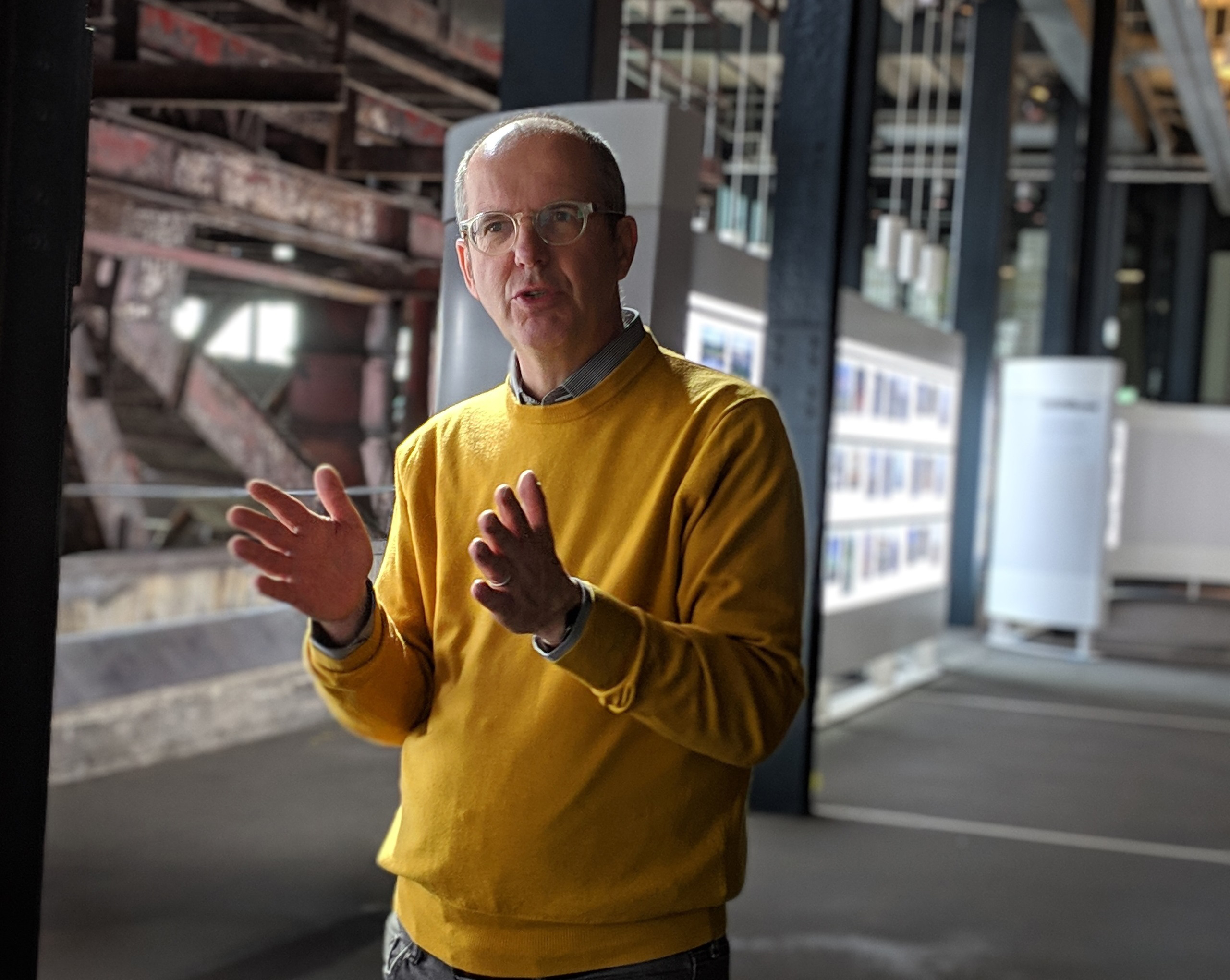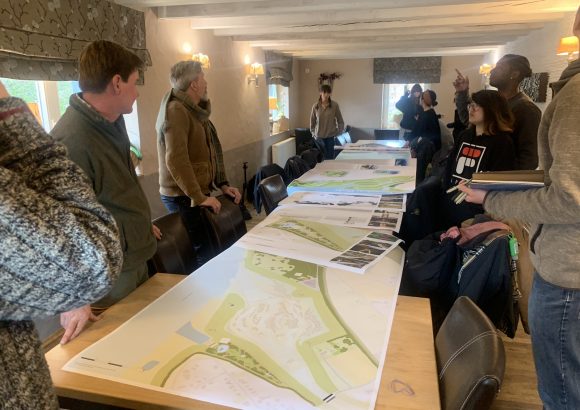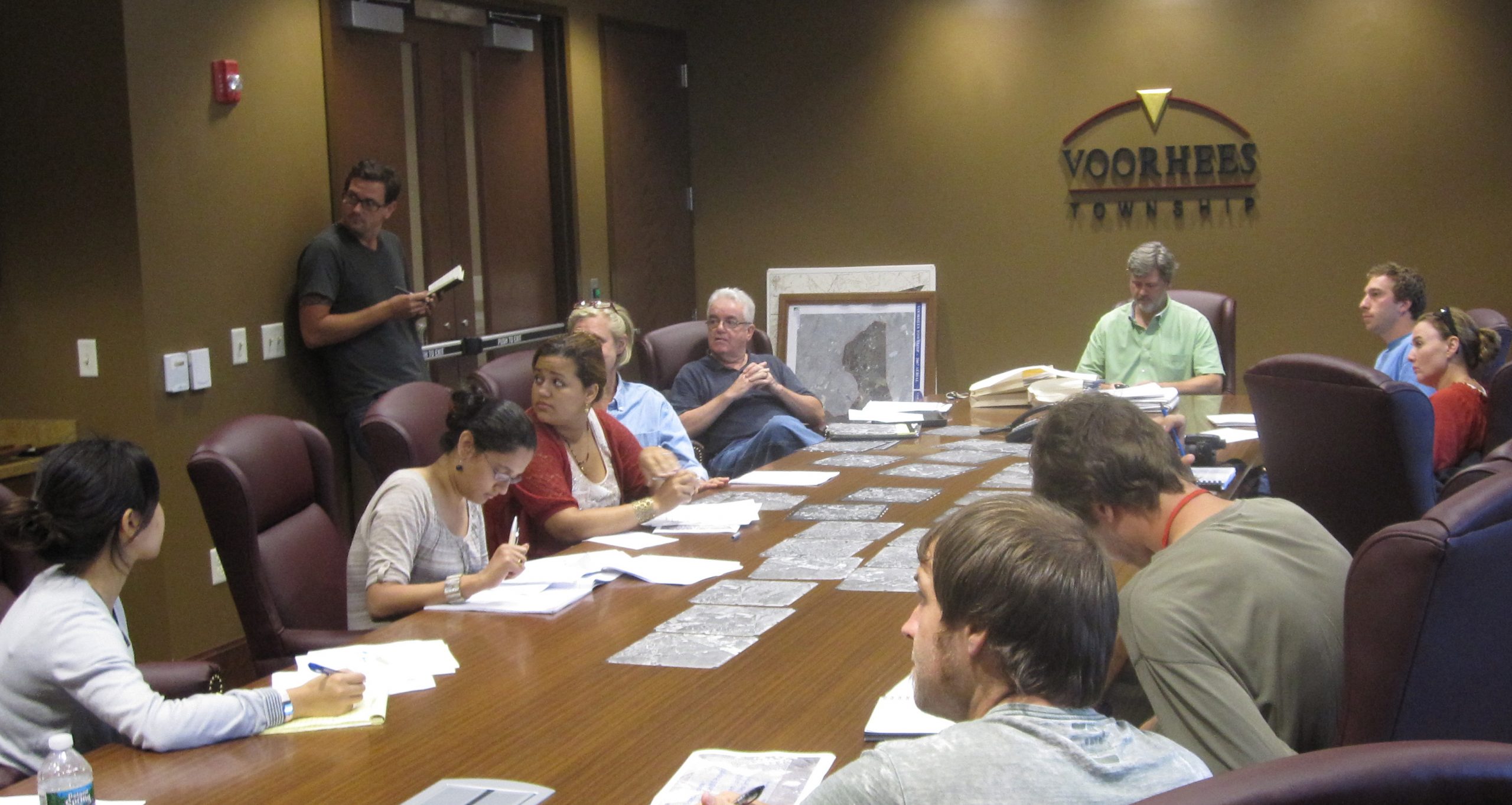
Associate professor Wolfram Hoefer speaking to Rutgers students during a class trip to Essen, Germany. Photo credit: Lydia Zoe.
Wolfram Hoefer, associate professor in the Department of Landscape Architecture, was recognized with the 2021 Excellence in Design Studio Teaching by the Council of Educators in Landscape Architecture (CELA). This competitive international award was presented on March 19 at the annual conference of CELA, the premier international organization for educators in landscape architecture. Hoefer, who joined the Rutgers faculty in 2006, is also the director of the Center for Urban Environmental Sustainability (CUES).
Below, Hoefer shares his philosophy on design studio teaching that earned him the recognition of his peers and this most recent senior level award from CELA.
My approach defines teaching as an interactive process of guiding students toward informed critical thinking. Design Studio teaching plays a fundamental role in this process because it allows students to combine their individual creative potential with scientific knowledge in the iterative process of design.
He continues by saying that, “this approach fosters a close interconnection between research, service and teaching that is a requirement for high-quality academic education at a land-grant institution. Students in Landscape Architecture and Environmental Planning need to learn how the current global challenges of climate change, public health and social disparities can be addressed on a local level, applying the toolbox of both professions. Teaching is most effective when students can apply their newly gained knowledge to solving real world problems.”

Rutgers students discussing design ideas with residents in Germany during a trip led by associate professor Wolfram Hoefer.
The challenge for design studio instructions is to translate the real-world problems into class assignments that help students to address the problem according to their educational level. Without the appropriate assignment structure in a studio class, students can be overwhelmed by existing complexities which may cause frustration, slowing the learning process. When students are well guided through a real-world problem, their design work becomes more meaningful to them, and this motivation greatly supports the learning process.
“All my Design Studios are anchored in the real world and address current challenges in a meaningful way. Shortly after my 2006 arrival at Rutgers, my colleague Beth Ravit from the Department of Environmental Sciences and I founded the Rutgers Center for Urban Environmental Sustainability (CUES). This bottom-up faculty initiative received a startup grant in 2009 by the Dodge Foundation and aims to bring environmental planning, research, and public outreach available through Rutgers out into the (sub-) urban communities of New Jersey. It has grown into an interdisciplinary collaboration, providing the best science, planning, engineering and design expertise to address (sub-) urban environmental issues.”
Faculty participating in CUES projects are associated with diverse academic disciplines, including the New Jersey Agricultural Experiment Station, departments of Landscape Architecture, Environmental Sciences, Ecology, Biochemistry & Microbiology, the Environmental & Occupational Health Sciences Institute and the Edward J. Bloustein School of Planning and Public Policy.
“CUES provides opportunities for myself and other faculty to bring real-world problems into the classroom and to effectively engage students with residents, officials and other stakeholders. Although CUES believes in pro-bono support, the majority of the projects receive outside funding, enabling us to hire students, offering educational opportunities beyond the classroom. This fluency between classroom assignments and paid internships is a significant contribution to the overall learning experience.”

Rutgers landscape architecture graduate students in discussion with officials in Voorhees, NJ.

